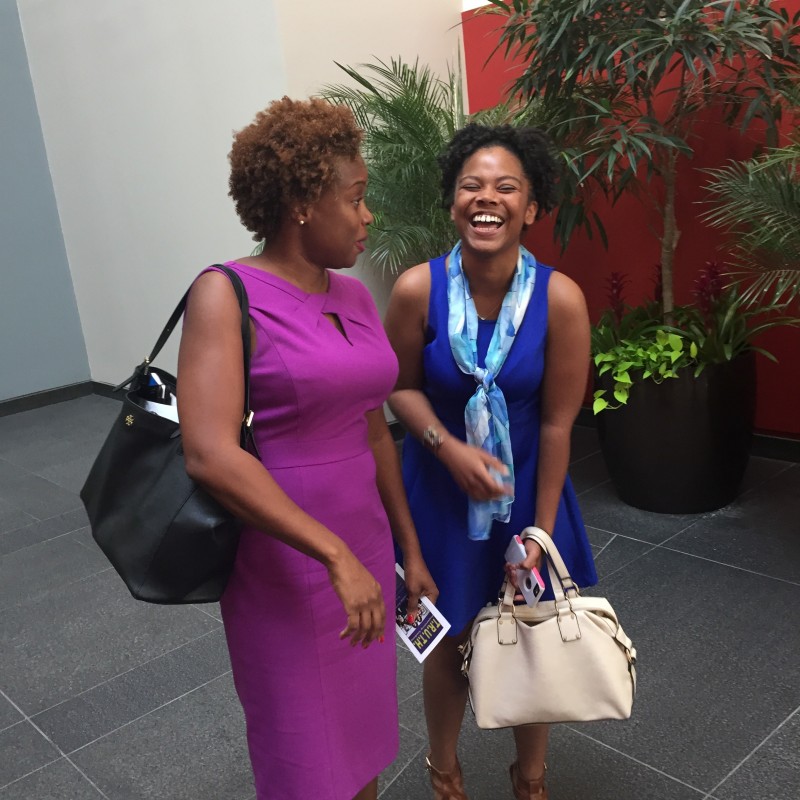Schools must teach that black lives matter
There is nothing wrong with black folk that ending racism can’t solve

Khalilah Harris, Deputy Director of the White House Initiative for Educational Excellence for African Americans (right) with Anita Sewell, 19, creator of the Souls of Black Girls.
NeW ORLEANS — Let’s get something straight; in a city where drinking and debauchery is as much a rite of passage as debutante balls, the sum of young people arrested shouldn’t be almost exclusively black.
But ninety-nine percent of all juveniles arrested in New Orleans are African-American. Blacks represent approximately 60 percent of all residents and about 77 percent of the children from age 10 to 19, according to Louisiana state estimates. Based on this data, I guess there is no white juvenile crime in New Orleans. Am I supposed to assume the juvenile crime problem in the city is on the shoulders of black boys and girls?
No, there is nothing wrong with black folk that ending racism can’t solve. Add “learning while black” to the list of regularly used phrases we must eliminate from the police harassment lexicon: “stop-n-frisk, shop-n-frisk, driving while black” and “three-strikes.” No-tolerance practices are as ubiquitous in schools as it is in policing. Schools route children to the criminal justice system. This is why the U.S. Department of Education is Rethinking Discipline.
Ending racism in schools is not simply about limiting suspensions and expulsions. Schools are either teaching beliefs that black students deserve the punishments they receive or they’re not instilling the kind of values that would have us eschew criminal-like punishments.
Destroying the school to prison pipeline will come from arresting all biased systems that entrap black girls and boys – curricula included.
Federal officials and juvenile justice advocates discussed the school to prison pipeline at the 45th Congressional Black Caucus Foundation Annual Legislative Conference in a session titled “Reversing the School to Prison Pipeline for African Americans and Minorities.” U.S. Department of Education staffers highlighted recently released maps showing exactly where students are most likely to be suspended.
Related: Schools with more black students are less likely to steer students to mental health services
According to the USDOE, “black students are suspended and Schools must teach that black lives matter - The Hechinger Report:
